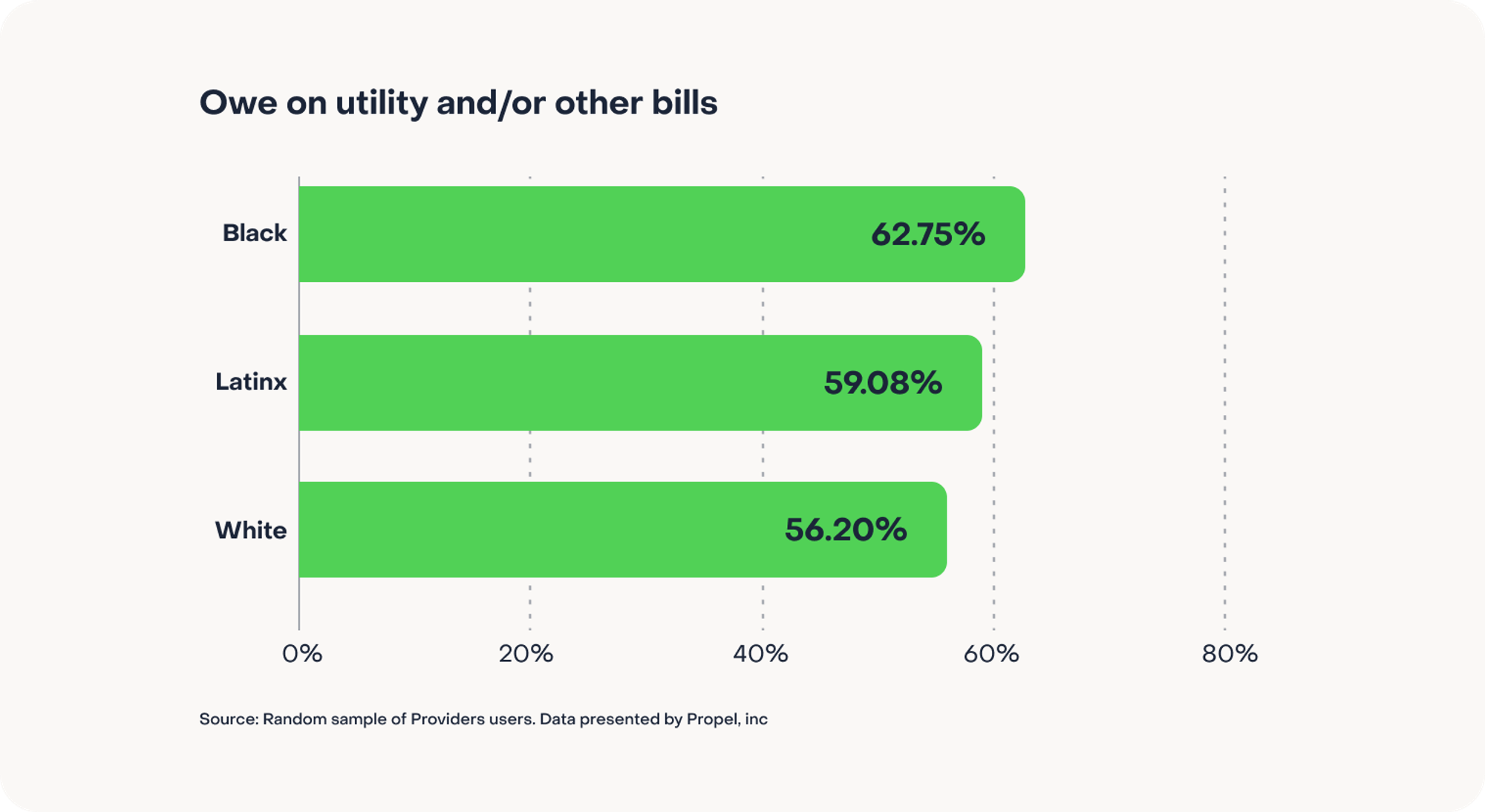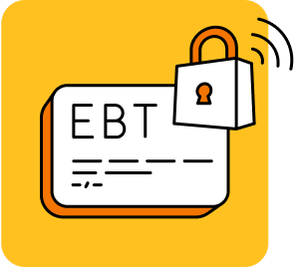Report
SNAP Households Survey December Results
The following insights come from a 10-minute multiple choice and open response survey conducted by Propel to a random sample of 4,718 of over 5M Propel users from December 1 - December 14, 2022. All respondents are EBT cardholders.
Table of contents
FOOD INSECURITY#food-insecurity
Food insecurity is down, but Propel users report higher food costs than ever.#food-insecurity-is-down-but-propel-users-report-higher-food-costs-than-ever
- The percentage of users who reported skipping meals, eating less, visiting a food pantry, and relying on others for meals all dropped between November and December.

- However, over 90% of users report both their basic monthly food purchases cost more than they did a year ago.
"I don't have money or enough food stamps to have a Christmas dinner and I have a 9 month old grandbaby that lives with me and I can't buy her anything for Christmas and I can't buy my other 8 grandbabies anything either. So no food or Christmas at my house again this year.” — Propel user, Kentucky
HOUSING#housing
Shelter stays have been rising steadily since August, and evictions are up.#shelter-stays-have-been-rising-steadily-since-august-and-evictions-are-up
- Nearly 5% of Propel users said they had spent at least one night in the previous month in a shelter.
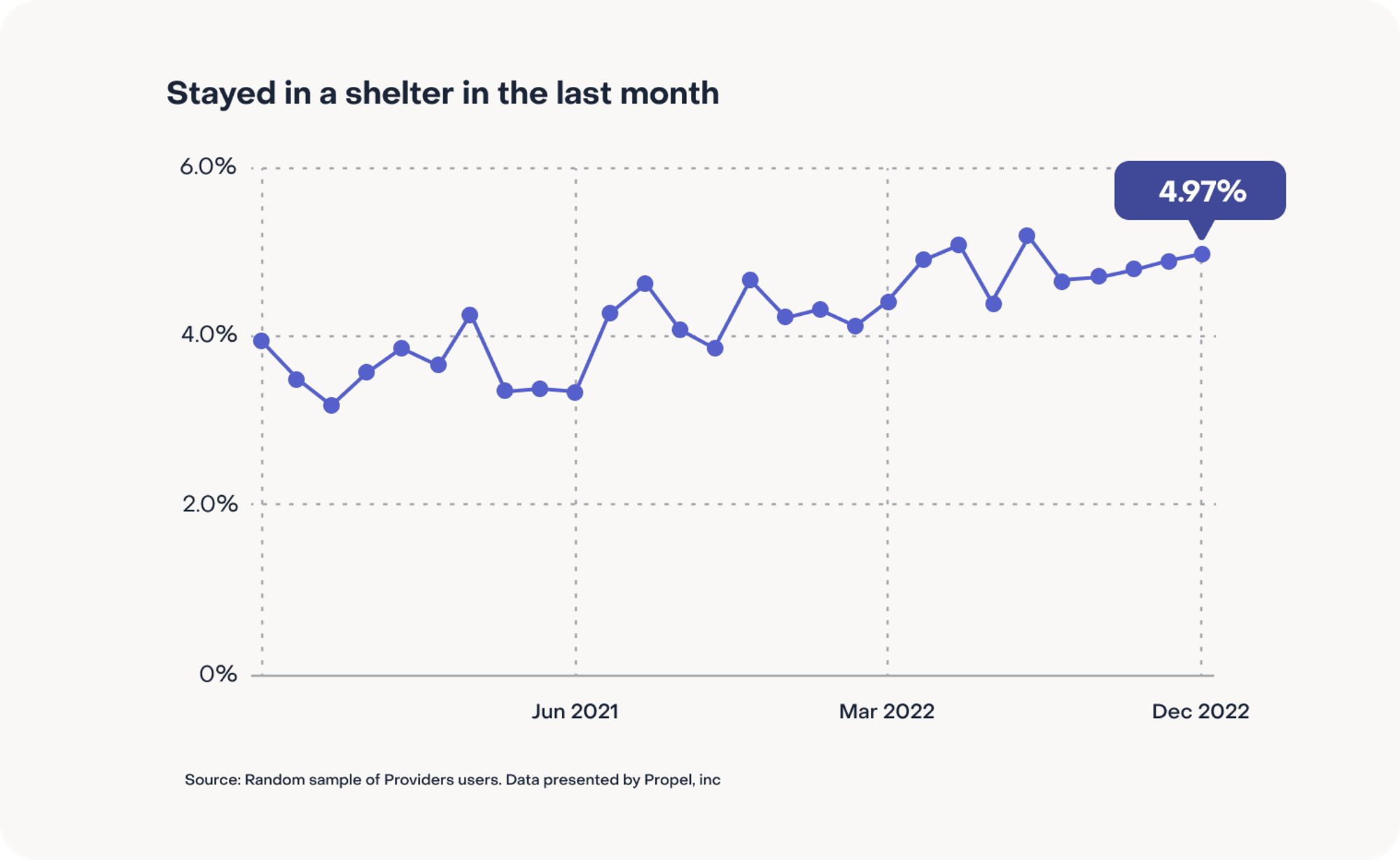
“One hand tries to wash the other as best as possible. My rent is up due to an error made by my housing worker which they won’t deduct and I fear being back in the shelter. I’m hoping to find a means to start paying off my rent somehow. I will reapply for assistances but it’s not guaranteed.” — Propel user, New York
- 8.6% of Propel users reported being evicted or foreclosed up on in the past month, up 4% from November.
FINANCIAL SECURITY#financial-security
Propel users of color are experiencing high levels of financial insecurity.#propel-users-of-color-are-experiencing-high-levels-of-financial-insecurity
“[I’m] worried about providing for my children. I already struggle for basic necessities but the holidays put pressure to provide extras that I can't afford.” — Propel user, Ohio
- Latinx and Black users were more likely to have borrowed or relied on credit to cover their expenses in the last month:
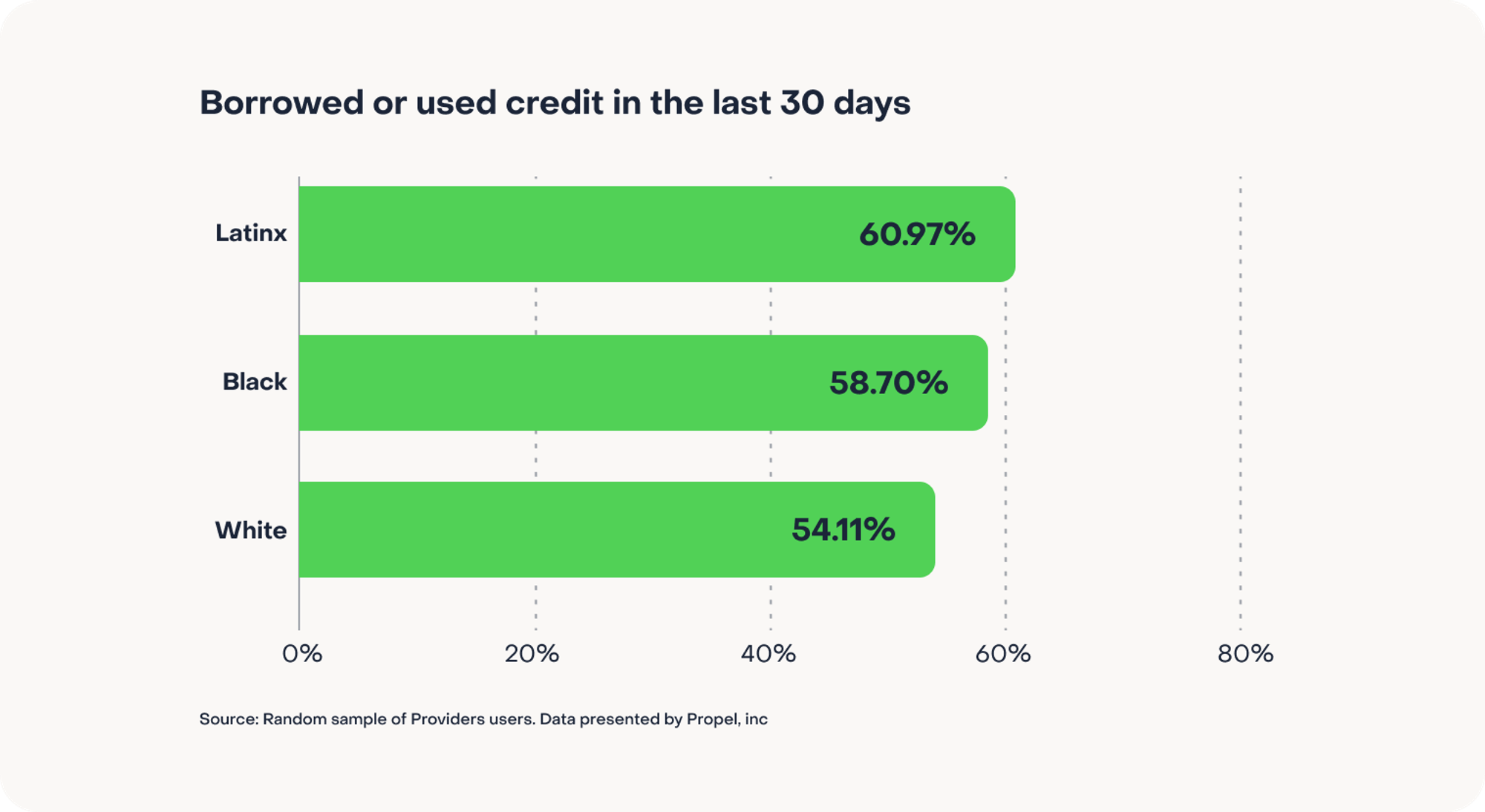
- Propel users of color were more likely to owe back rent or mortgage:
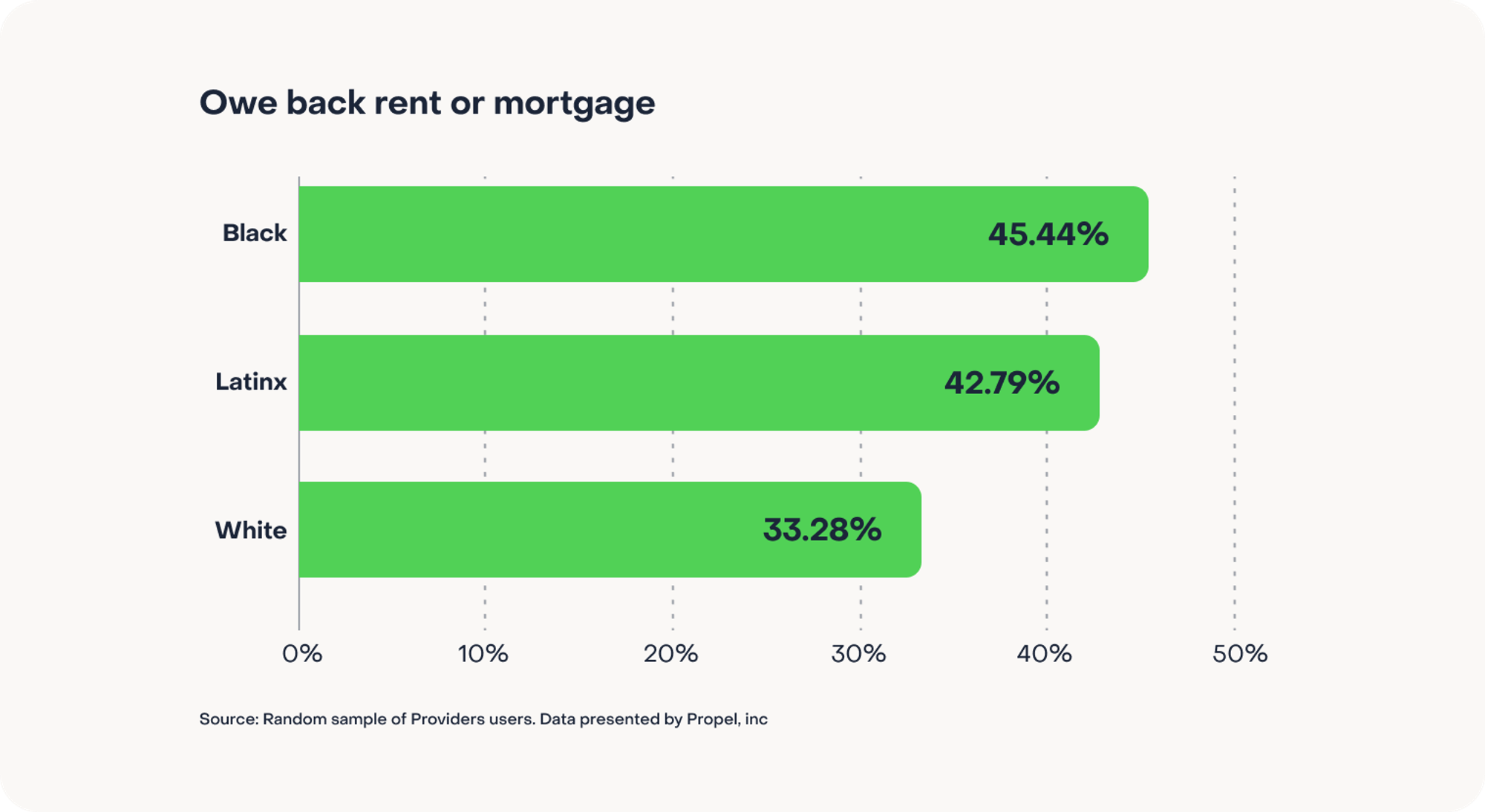
- Propel users of color were also more likely to owe on utility and/or other bills:
